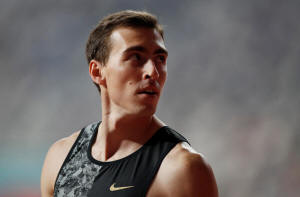|
The AIU, which oversees integrity issues in
global athletics, said that a low concentration of acetazolamide
had been found in Shubenkov's out-of-competition sample
collected in December 2020.
The substance is on the World Anti-Doping Agency's (WADA) list
of prohibited diuretics and masking agents and is banned both in
and out-of-competition.
Shubenkov, the 2015 world champion and silver medallist at the
2019 worlds in the 110 metres hurdles, told the unit that the
finding was linked to the residue of a medication taken by a
family member.
"After a thorough investigation of the athlete's explanation
during results management process, the AIU accepted that the
positive finding resulted from his unintentional ingestion of
residue from medication being used to treat a family member,"
the unit said in a statement.
The AIU added that its charge against Shubenkov had been
referred to its disciplinary tribunal, which found that
Shubenkov's case was "genuinely exceptional".
Welcoming the decision, Shubenkov posted on Instagram on Tuesday
that his three-month-old son had been prescribed a medication
containing the substance, and that its preparation had left
microscopic traces of it in his kitchen.
"Luckily, it ended up nicely," he wrote, thanking the AIU.
The decision to clear him could pave the way for the 30-year-old
to be cleared to compete internationally as a neutral athlete,
including for the Tokyo Olympics that kick off next month.
No more than 10 Russians will be allowed to compete in athletics
as neutrals at the Games.
Russia's athletics federation was suspended in 2015 in the wake
of a report commissioned by WADA that found evidence of mass
doping among track and field athletes in the country.
(Reporting by Gabrielle Tétrault-Farber; Editing by Alison
Williams)
[© 2021 Thomson Reuters. All rights
reserved.] Copyright 2021 Reuters. All rights reserved. This material may not be published,
broadcast, rewritten or redistributed.
Thompson Reuters is solely responsible for this content. |
|






